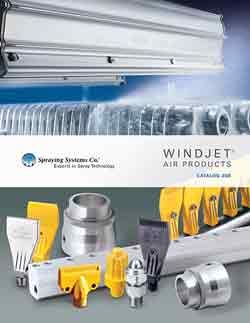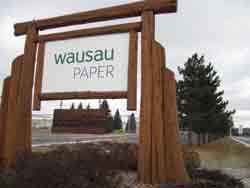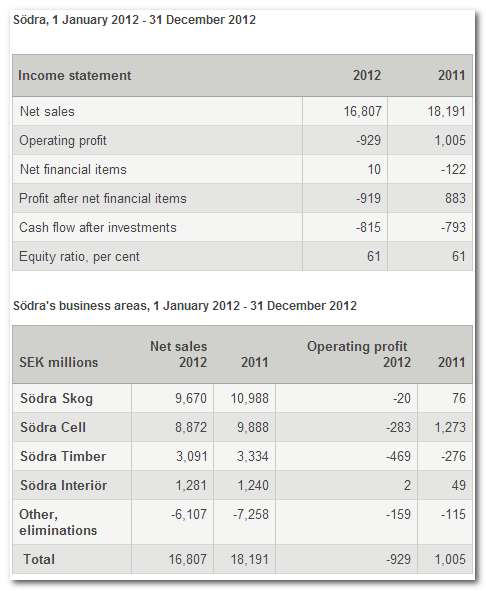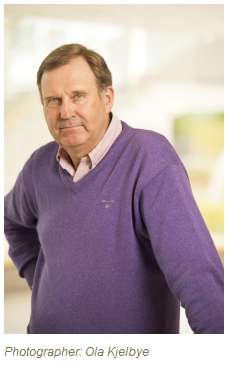Ianadmin
Metso to supply biomass power plant for Vimmerby Energi & Miljö in Sweden for green energy production
Metso will supply Vimmerby Energi & Miljö AB (VEMAB) with a biomass-fired power plant for combined heat and power production at Tallholmen in the city of Vimmerby, Sweden. The new plant will secure supply of competitive district heating for the city and lower its CO2 emissions. The start-up of the plant is scheduled for the end of 2014. The value of the order is approximately EUR 25 million.
Metso’s delivery will include a power plant utilizing bubbling fluidized bed combustion technology. The plant automation will be based on Metso DNA technology and Metso will also supply a flue gas condenser. The delivery will also include installation, training and commissioning.
The boiler plant will have a thermal output of 26 MWth and an electrical output of 7 MWe. In addition, the flue gas condenser will produce 4.5 MWth of heat. The plant will be able to supply the district heating network and local industries with hot water of different temperatures. It will also be able to supply steam to a local brewery. The electricity produced will be distributed to the national grid. The plant is designed for unmanned operation. The plant will use local forest residues such as bark and wood chips as fuel.
“We chose Metso as the supplier because they are able to deliver a solid industrial-scale combined heat and power boiler capable of satisfying our need to supply various types of energy. This is a major investment for us. We hope the project will continue as successfully as it has begun and that the CHP plant will be ready to supply heat and electricity during fall 2014,” says Mats-Lennart Karlsson, Project Manager at Vimmerby Energi & Miljö AB.
“We highly value the confidence VEMAB has shown us by awarding us this order. The project has been started successfully and in good cooperation with VEMAB. This is a very important order for us and we are confident that the plant will meet all the client’s expectations,” says Sales Director Mikael Barkar, Power business line, Metso.
The main part of the order is included in Metso’s Pulp, Paper and Power fourth quarter 2012 orders received. The automation system is included in Automation’s fourth quarter 2012 orders received.
Vimmerby Energi & Miljö AB supplies local customers with renewable electricity and heat. The operations are primarily located in the municipalities of Vimmerby and Hultsfred. Vimmerby Energi & Miljö AB is owned by the municipality of Vimmerby and its operations are certified in accordance with both ISO 14001 and ISO 9001.
Metso-supplied TAD tissue production line efficiently started up at Clearwater Paper
On schedule, December 13, 2012 Clearwater Paper’s new Metso-supplied Advantage THRU-AIR (TAD) tissue machine was successfully started up and produced its first ton of paper in Shelby, North Carolina, USA. The completion of the flagship facility in Shelby fulfills one of Clearwater Paper’s primary business strategies – to focus on growing the consumer segment of the company.
“Metso TAD technology coupled with their strong project team and process integration capabilities were integral to the success of this project,” said Brian Hoaglund, Clearwater Paper’s expansion project leader. “Metso was a solid partner in delivering equipment that met our performance requirements and will allow Clearwater Paper to deliver ultra quality tissue products to our customers.”
“We are very impressed by Clearwater Paper’s determination and dedication of building a first class tissue manufacturing facility in Shelby. It has been a pleasure for the Metso team to work with them during the definition and execution phase in a well integrated delivery team. The result paid off with an excellent start-up,” said Soren Eriksson, Account Sales Manager, Metso.
Metso’s delivery comprised a complete production line with stock preparation equipment and an Advantage THRU-AIR 200 TAD machine including a Metso Yankee cylinder, THRU-AIR dryers, and an Advantage WetDust dust management system. The delivery also comprised an extensive automation package including Metso DNA machine and process controls and a Metso IQ quality control system with Metso IQ Scanners and Metso IQ Profilers.
The new production line will produce 70,000 tons a year of Ultra Premium high-quality tissue grades. The raw material for the new line will be virgin pulp.
Clearwater Paper manufactures quality consumer tissue, away-from-home tissue, parent roll tissue, machine glazed tissue, bleached paperboard and pulp at 15 manufacturing locations in the U.S. and Canada. The company is a premier supplier of private label tissue to major retailers and wholesale distributors. This includes grocery, drug, mass merchants and discount stores. The company also produces bleached paperboard used by quality-conscious printers and packaging converters. Clearwater Paper's employees build shareholder value by developing strong customer relationships through quality and service.
Dmitry Zylyov appointed as new CEO of Arkhangelsk pulpmill
Arkhangelsk, February 21. The board of Arkhangelsk pulpmill appointed Mikhail Zylyov as new Chief Executive of the company. Since 2004, Mr. Zylyov has held the position of Director, Economy and Finance.
In his new position Mr. Zylyov will be responsible for further development of the company compliant with its strategy, which is implementation of investment projects aimed at increasing production, strengthening market positions and boosting company’s capitalization.
Mikhail Papylyov who has held the leading post in the company since 2011 left the company on his own will. The shareholders appreciated highly his contribution into this business and wished further success.
Dmitry Zylyov was born in 1970. He graduated from foreign languages faculty at the Pomor State University in Arkhangelsk and local department of Finance Institute under the Russian Government as specialist in banking.
Mondi Group's revenue in 2012 reached €5.8 billion; demand in Russia was down after strong 2011
Revenue of Mondi Group in 2012 amounted to €5.8 billion, compared to €5.74 billion a year ago, the company said in its full-year report.
"Continued strong profitability resulted in a return on capital employed (ROCE) of 13.7%, once again above our through-the-cycle target of 13%", company's CEO David Hathorn noticed.
While Western European markets remained soft, impacted by both short-term cyclical and longer-term structural challenges, demand growth in Eastern Europe (excluding the CIS region) was marginally positive. Market demand in Russia was down on a very strong 2011. In aggregate, Mondi’s sales volumes for uncoated fine paper were on a similar level to that of the previous year.
In Europe, selling prices were stable throughout the year with average benchmark European uncoated fine paper prices declining by 1% in the year, while marginal price increases were achieved in the Russian market.
Russia entered WTO in August 2012 and, as a consequence, import duties for uncoated fine paper will reduce by 2.5% per year until they reach a level of 5% in 2016. Implementation is due to start in 2013. The reduction in trade duties, coupled with new capacity coming on stream in both Russia and France, is expected to place some pressure on pricing in the short to medium term, Mondi said in its full-year report.
The business in 2012 benefited from lower input costs, driven by lower pulp costs for the unintegrated Neusiedler operation, partially offset by higher wood costs in Russia and generally higher energy costs.
Fixed costs were higher, largely due to a higher depreciation charge offset by ongoing cost optimisation initiatives.
Dryden's Jim Blight earns Mill Manager of the Year recognition from Industry Association
 Domtar Corporation has announced that Jim Blight, General Manager of the Domtar mill in Dryden, Ontario, was named Mill Manager of the Year at the annual PaperWeek Canada industry conference in Montreal. The award is given out by the Pulp and Paper Technical Association of Canada, or PAPTAC, to recognize outstanding leadership and performance results in the Canadian pulp and paper industry.
Domtar Corporation has announced that Jim Blight, General Manager of the Domtar mill in Dryden, Ontario, was named Mill Manager of the Year at the annual PaperWeek Canada industry conference in Montreal. The award is given out by the Pulp and Paper Technical Association of Canada, or PAPTAC, to recognize outstanding leadership and performance results in the Canadian pulp and paper industry.
Jim has worked at the Dryden Mill since 1998, and has been in the General Manager role since 2007.
"Taking quantum leaps in production capacity, cost structure, quality and safety performance is always the result of the hard work of many, but it takes a leader to bring out the best in people that allows these positive, sustainable results to happen," noted Martin Lorrion, Domtar's Vice-President of Manufacturing. "We're rightfully proud of him and what he's been able to accomplish with a strong team in Dryden."
"I need to share this professional honour with my colleagues here at the mill," added Jim Blight. "We've had to make some difficult but necessary changes over the recent years to reposition ourselves for the changing global markets - we're now a safer, more competitive operation thanks to many people making a sustained, collective effort over a long period of time."
SOURCE: DOMTAR CORPORATION
New Catalog Features Air Nozzles and Systems to Improve Drying and Blow-off Efficiency
 A new catalog featuring WindJet® compressed air nozzles and WindJet air knife packages powered by regenerative blowers for drying and blow-off has been released by Spraying Systems Co. The catalog takes an in-depth look at how air nozzles can reduce use of compressed air by as much as 92% and perceived noise up to 60% compared with open pipe. Also detailed is how compressed air use can be eliminated completely and replaced with air knives and quiet, dependable blowers.
A new catalog featuring WindJet® compressed air nozzles and WindJet air knife packages powered by regenerative blowers for drying and blow-off has been released by Spraying Systems Co. The catalog takes an in-depth look at how air nozzles can reduce use of compressed air by as much as 92% and perceived noise up to 60% compared with open pipe. Also detailed is how compressed air use can be eliminated completely and replaced with air knives and quiet, dependable blowers.
The catalog includes a section on blowing and drying operation optimization and provides helpful information on effective coverage, sound level and lineal and specific impact force.
Operating principles and usage guidelines are provided for air nozzles, low-flow air knives, air amplifiers and air knife packages to help readers understand the best applications for each product type.
Detailed performance information on dozens of WindJet products is also included. Material options, dimensional drawings and performance-enhancing tips for each product are provided.
Please click the banner to download the catalog
Wausau Paper Announces Closure of Brainerd, Minnesota, Mill
 Wausau Paper has announced the closure of the Company’s technical specialty paper mill in Brainerd, Minnesota, to occur early in the second quarter of 2013. The closure will affect approximately 130 employees.
Wausau Paper has announced the closure of the Company’s technical specialty paper mill in Brainerd, Minnesota, to occur early in the second quarter of 2013. The closure will affect approximately 130 employees.
Pre-tax closure charges are estimated to be $47 million, with non-cash charges, primarily related to the write-down of long-lived assets, accounting for approximately $44 million of the total. First quarter, pre-tax closure charges of approximately $36 million are expected with the remaining charges occurring over the balance of 2013. After considering income tax liabilities and the anticipated reduction in working capital, the cash impact of the closure is expected to be neutral on a cumulative basis.
The Company recently announced its intent to strategically reposition the company to focus on its Tissue business. A range of alternatives for the divestiture of the technical specialty business have been explored. It has become clear that Brainerd will not contribute to those alternatives and the closure will significantly improve the continuing Paper segment operating results.
Hank Newell, president and CEO commented on the closure, “A number of factors, including our accelerated exit from the print business, protracted global economic weakness and recent competitive paper capacity additions in Asia have impacted the viability of the Brainerd operations and created operational losses from the mill that were unsustainable. Our employees and the community of Brainerd have done all we have asked in our efforts to create a long-term viable operation and we thank them for their support.”
AppliTek reduces chemical footprint in Kraft paper mills
 AppliTek, specialist manufacturer of on-line analyzers, has launched new applications tailored to the needs of the pulp and paper industry. Embedded in several process industries, AppliTek has the expertise to provide pulp and paper manufacturers the necessary tools to significantly reduce give-aways, in order to achieve their competitive edge in a rapidly changing and economically charged sector.
AppliTek, specialist manufacturer of on-line analyzers, has launched new applications tailored to the needs of the pulp and paper industry. Embedded in several process industries, AppliTek has the expertise to provide pulp and paper manufacturers the necessary tools to significantly reduce give-aways, in order to achieve their competitive edge in a rapidly changing and economically charged sector.
Kraft paper mills use large amounts of strong alkaline pulping solutions that are continuously spent and recovered during manufacturing. Efficient operation and consistent quality specifications depend largely on tight control of the mill’s recovery lines and causticizing degree. Debottlenecking and stabilizing the causticizing process starts with process transparency.
AppliTek’s newly developed UPA® automatic (on-line) titration system is built specifically for causticizing processes, enabling operators to monitor simultaneously all critical alkaline parameters. The system is a major improvement fitting in a process control strategy for debottlenecking and stabilizing the causticizing process, while keeping conformity with conventional industry-standard tests.
For more information, please download the application note on this subject.
High purity water
In addition to the actual papermaking process, paper and pulp mills also operate their own boilers for producing steam and electricity to the plant. Managing the water and steam cycle in large-scale boiler feed water systems is influenced by many different variables, affecting the total system performance. Real-time data on water parameters such as ammonia, hydrazine or sodium is critical and can be provided by AppliTek on-line analyzers.
For more information, please visit the Pulp & Paper industry section of applitek.com.
Södra's income statement for 2012 and suggested profit share
Södra's operating profit for 2012 amounted to SEK -929 million (SEK 1,005 million in 2011). Profit after net financial items amounted to SEK -919 million (SEK 883 million in 2011). Net sales fell by SEK 1,384 million to SEK 16,807 million, primarily as a consequence of a major economic downturn with declining markets for Södra's products and strengthening of the Swedish krona. The reported results also include non-recurring items.
- Forest activities were reduced as a consequence of lower production in the industry.
- Production ceased at Södra Cell Folla in November. This mill has been in Södra's possession since 2000.
- A savings programme has been implemented in order to handle the recession, and the aim of this is to reduce the Group's fixed costs by 10 per cent. The measures undertaken included notice of layoffs in the autumn, resulting in 232 jobs being lost.
- A decision has been made to phase out Södra's involvement in Södra Cell Tofte.

2012 was characterised by very weak development in the markets for Södra products. Net sales fell, mainly as a result of lower pulp and timber product prices and the strengthening of the krona. Production at Södra's industries was also affected by the stoppages which took place at the start of the year.
Comments on the results from Acting CEO and Group President Gunilla Saltin:
 "We were facing a relatively weak economic situation at the start of the year, and it was hoped that the situation would gradually improve. But the opposite was true. As the year continued, we were affected more and more by the major recession in Europe, which is our primary market. This extremely weak market situation has affected all our business areas," said Gunilla Saltin, Acting CEO and Group President for Södra.
"We were facing a relatively weak economic situation at the start of the year, and it was hoped that the situation would gradually improve. But the opposite was true. As the year continued, we were affected more and more by the major recession in Europe, which is our primary market. This extremely weak market situation has affected all our business areas," said Gunilla Saltin, Acting CEO and Group President for Södra.
The results reported for 2012 include a number of non-recurring items, such as the costs involved in the closure of Södra Cell Folla and costs linked with organisational changes.
"We hope we will see an upturn in the markets for our products in 2013. The economic situation remains uncertain, but towards the end of the year we were seeing some stabilisation, mainly on the pulp market. The situation remains uncertain for timber products, but we are seeing signs of a certain amount of improvement. We do not think that present exchange rates will be altered to any great extent.
"When it comes to finding a way out of the economic crisis affecting the world economy, this is something our politicians need to do. As far as Södra is concerned, we need to take responsibility for the company and attempt to deal with the prevailing circumstances. This is why we have implemented a series of measures in order to enhance our competitiveness - measures that will take effect over the year.
"Despite the weak results, Södra's equity ratio remains high, amounting to 61 per cent at the end of the year."
Business in 2012
2012 saw the start of permanent production of textile pulp on one of the pulp lines at Södra Cell Mörrum. A total of just under 100,000 tonnes of textile pulp were produced over the year.
Work on the long-term development of energy activities is continuing within the Group. Decisions were made in 2012 to install a new lime kiln and pellet plant at Värö.
"These investments will allow us to further increase energy efficiency at the Värö plant, while at the same time creating profitable processing of our members' raw timber. We are benefiting from the fact that we have access to raw materials in the form of shavings and the energy to dry the shavings to form pellets, all in the same place," said Gunilla Saltin.
Having spent a relatively long time working on creation of profitability at Södra Cell Folla, where CTMP (chemithermomechanical pulp) is manufactured, Södra Cell made the decision to cease production from November 2012. In December, a declaration of intent was signed between Södra and Mayr Melnhof Karton in which Mayr Melnhof Karton stated its intention to take over the pulp mill and resume production.
Pulp production amounted to 1,782,000 tonnes, compared with 1,912,000 tonnes in 2011. This reduction is explained by the stoppages which took place at the Norwegian mills at the start of the year and the decision to cease production at Södra Cell Folla.
Production of sawn timber products increased by 18,000 m3 to 1,399,000 m3. Södra Timber's operating profit was affected by lower prices for finished goods, the strengthening of the Swedish krona and the high cost of raw materials. The business was also affected by the fact that the commissioning of the new sawmill in Värö has taken longer than planned. The new plant is expected to reach its intended production level early next autumn, almost a year later than originally planned.
Södra Interiör's net sales increased by SEK 41 million to SEK 1,281 million. Weak demand combined with price pressure from competing cut-price imports led to a decline in operating profit.
The affiliated member area at the end of the year amounted to 2.36 million hectares, with 50,888 members. Södra Skog managed a total of 15.6 million m3sub of raw timber, compared with 17.0 million m3sub in the previous year.
Södra suggests SEK 302 million profit share
"2012 saw Södra making massive losses. Despite this, Södra's strong financial position means that we are proposing to the meeting a transfer to members totalling SEK 295 million," said Christer Segerstéen, Chairman of Södra.
Södra's executive committee made a decision at its meeting on 14 February on the following suggested dividend to be submitted to the Annual General Meeting on 15 May 2013:
Dividend
The following dividend will be distributed to members:
| 3 per cent on deposited capital | SEK 80 million |
| 3 per cent patronage refunds (on wood deliveries) |
SEK 109 million |
Contribution issue
SEK 106 million will be transferred to members' deposit accounts through bonus shares. This contribution issue amounts to 10 per cent of outstanding deposited capital contributions.
In addition to dividends and a contribution issue, a 5.7 per cent dividend is proposed on debenture contributions, Series D, equivalent to SEK 7 million.
Comments from Chairman Christer Segerstéen
 "2012 saw massive losses for Södra, but despite this we are proposing a profit share of SEK 302 million. This is because it is important for Södra's owners to receive returns on their venture capital and wood deliveries," said Christer Segerstéen, Chairman of Södra.
"2012 saw massive losses for Södra, but despite this we are proposing a profit share of SEK 302 million. This is because it is important for Södra's owners to receive returns on their venture capital and wood deliveries," said Christer Segerstéen, Chairman of Södra.
"Adopting a long-term strategy in terms of our dividend will help to make active forestry and active participation in Södra profitable for our members. The Södra model aims to reward the members who choose to supply all their timber to Södra and who therefore participate fully in our partnership. This proposal characterises this principle," said Christer Segerstéen.
"Södra's balance sheet, which has been built up over a number of good years, makes it possible to propose a dividend to our members despite the massive losses we saw in 2012."
Another step on the Domtar Paper Trail
Latest Update to Environmental Calculator Website Includes Three Domtar Products and Additional Mill
Continuing its commitment to lead by example when it comes to transparency, Domtar Corporation has announced the latest additions to its award-winning site, The Paper Trail (www.domtarpapertrail.com). As the fourth update to the site, The Paper Trail will now include:
- Three additional products - EarthChoice®30 Recycled Office Paper, EarthChoice®50 Recycled Office Paper and EarthChoice® Opaque Offset 30% - all part of the Domtar EarthChoice® family of environmentally and socially responsible papers.
- A site history, picture gallery, and local stories from the company's Kingsport, Tennessee mill.
Since its release in June 2011, The Paper Trail has been widely praised, with industry observers applauding Domtar's openness in sharing mill and product data, offering up another concrete example of the company's industry-leading transparency. The Paper Trail was also named a Top Innovative Corporate Social Responsibility Initiative of 2012 by Brave One Agency, joining the likes of Unilever and The North Face in raising the environmental transparency bar for business.
With this latest update of The Paper Trail, Domtar is again voluntarily releasing product and mill data that helps its customers learn about the environmental and social impacts of their paper purchases.
"Expanding the offerings of The Paper Trail," said Paige Goff, Vice-President of Sustainable Business and Brand Management, "indicates Domtar's willingness to continue to push the transparency envelope, while helping our customers make informed purchasing decisions."
The Paper Trail develops personalized reports that measure Domtar products across five categories: water usage, the distance its fiber travels to a paper mill, greenhouse gas (GHG) emissions, waste sent to landfills and renewable energy usage. The Paper Trail also illustrates how Domtar compares to the industry in these categories. In cases where the environmental impact can be improved, Domtar voluntarily discloses the information, as well as the efforts underway to make improvements.
For more information, please visit www.domtarpapertrail.com.
SOURCE DOMTAR CORPORATION
